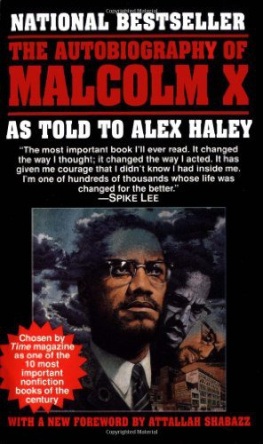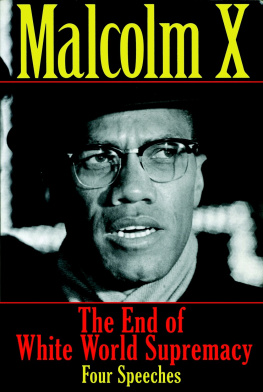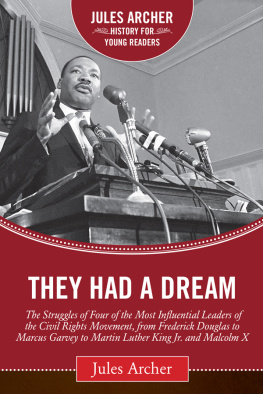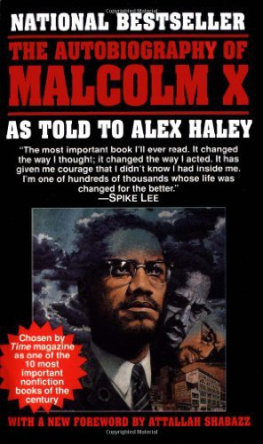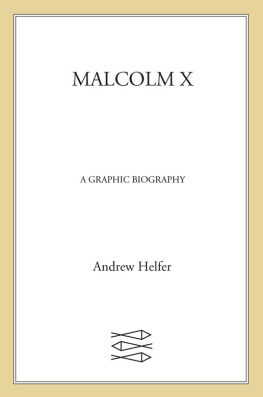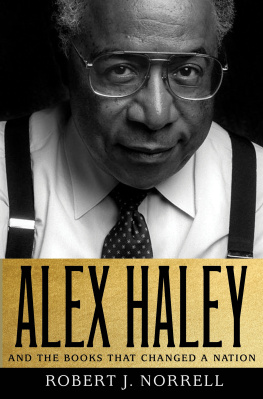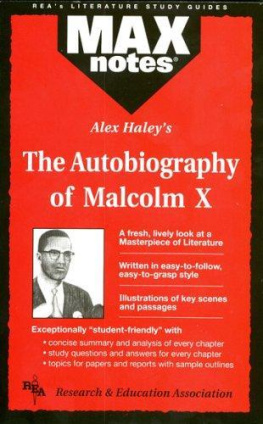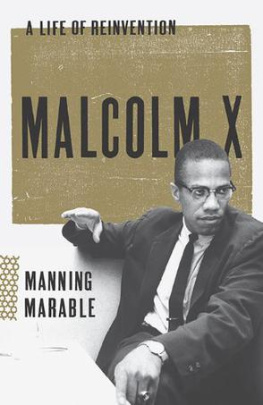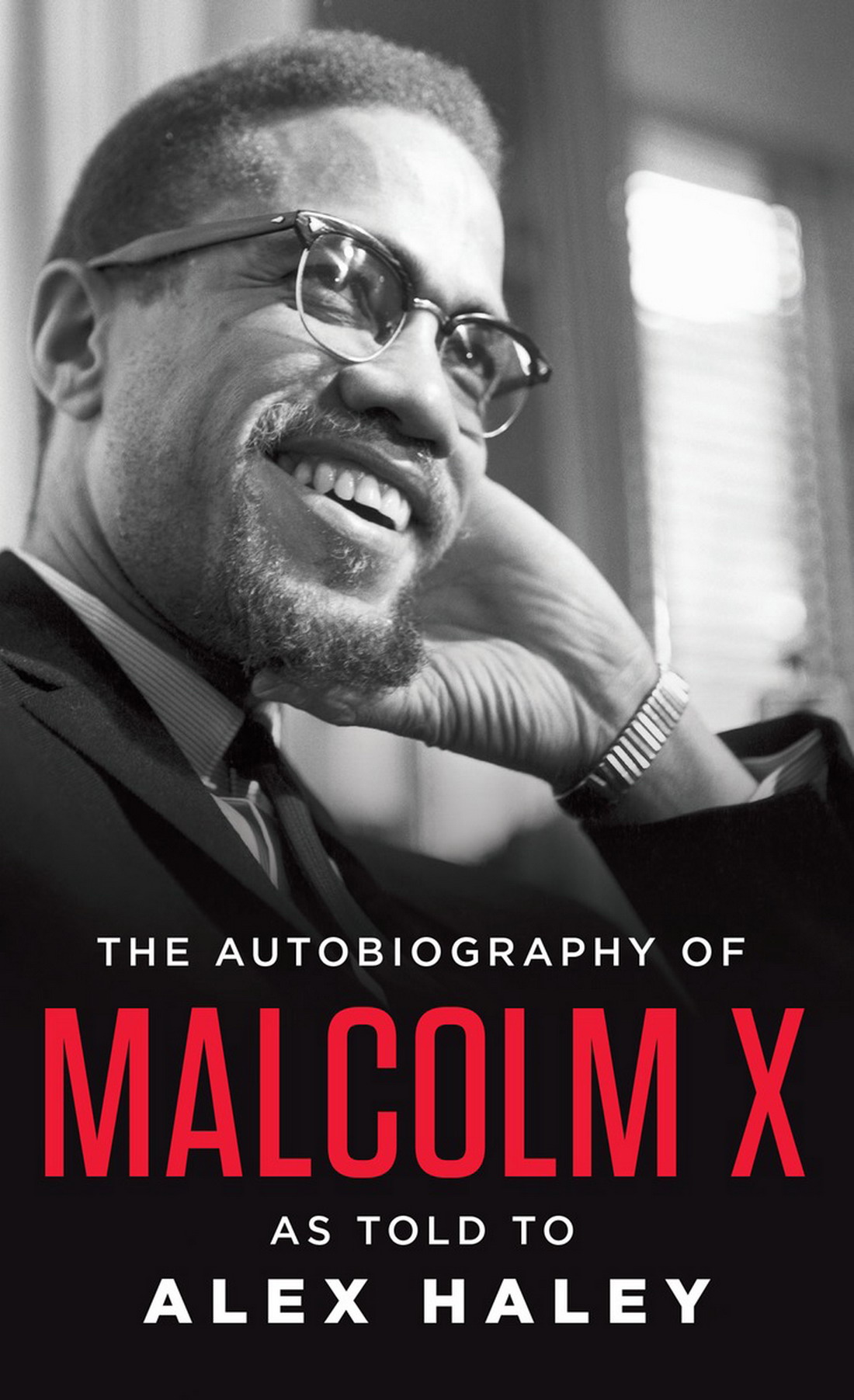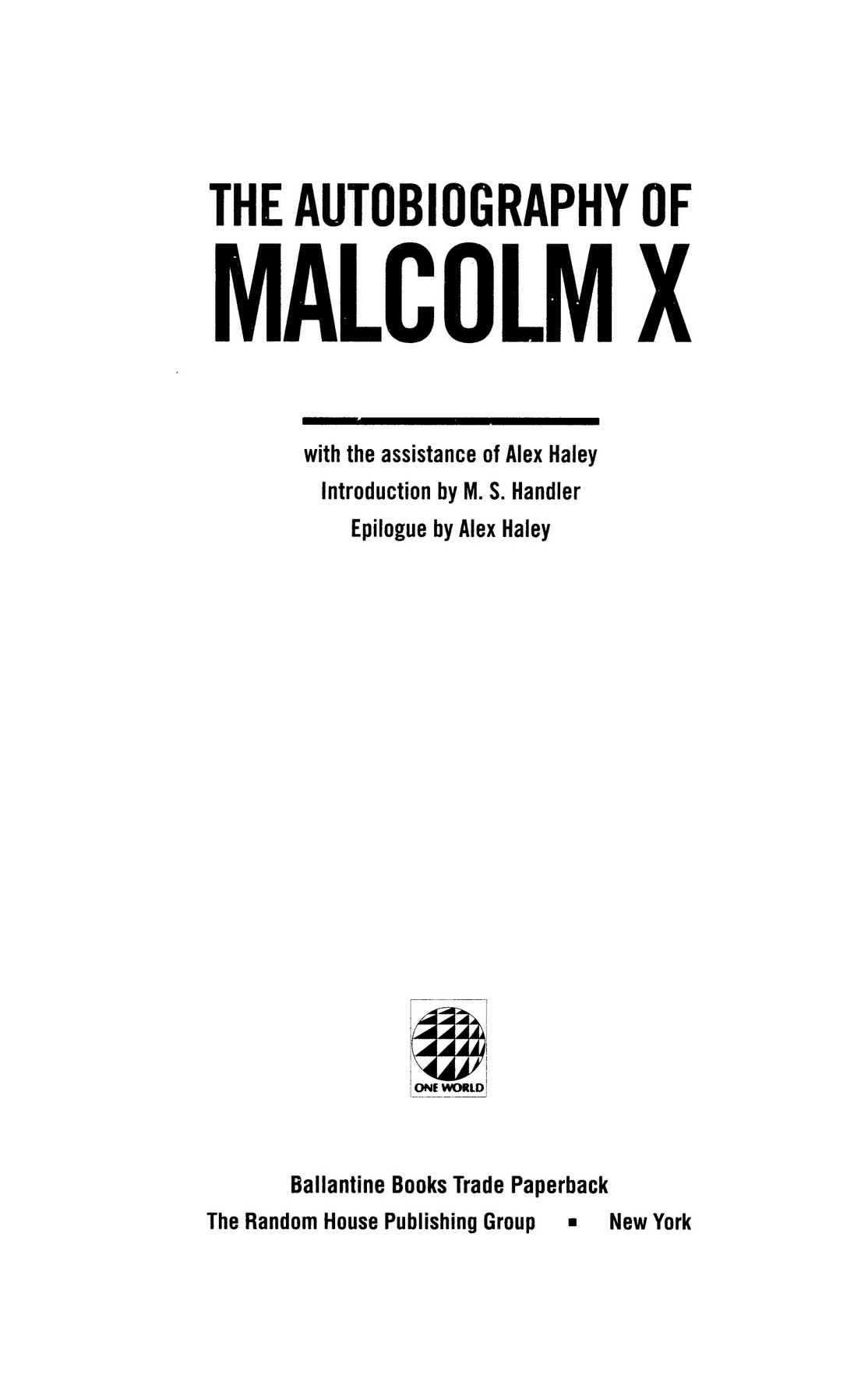Malcolm X - The autobiography of Malcolm X
Here you can read online Malcolm X - The autobiography of Malcolm X full text of the book (entire story) in english for free. Download pdf and epub, get meaning, cover and reviews about this ebook. City: New York, year: 2015, publisher: Grove Press;Ballantine Books, genre: Non-fiction. Description of the work, (preface) as well as reviews are available. Best literature library LitArk.com created for fans of good reading and offers a wide selection of genres:
Romance novel
Science fiction
Adventure
Detective
Science
History
Home and family
Prose
Art
Politics
Computer
Non-fiction
Religion
Business
Children
Humor
Choose a favorite category and find really read worthwhile books. Enjoy immersion in the world of imagination, feel the emotions of the characters or learn something new for yourself, make an fascinating discovery.

- Book:The autobiography of Malcolm X
- Author:
- Publisher:Grove Press;Ballantine Books
- Genre:
- Year:2015
- City:New York
- Rating:3 / 5
- Favourites:Add to favourites
- Your mark:
The autobiography of Malcolm X: summary, description and annotation
We offer to read an annotation, description, summary or preface (depends on what the author of the book "The autobiography of Malcolm X" wrote himself). If you haven't found the necessary information about the book — write in the comments, we will try to find it.
With its first great victory in the landmark Supreme Court decision Brown v. Board of Education in 1954, the civil rights movement gained the powerful momentum it needed to sweep forward into its crucial decade, the 1960s. As voices of protest and change rose above the din of history and false promises, one voice sounded more urgently, more passionately, than the rest. Malcolm Xonce called the most dangerous man in Americachallenged the world to listen and learn the truth as he experienced it. And his enduring message is as relevant today as when he first delivered it.
In the searing pages of this classic autobiography, originally published in 1964, Malcolm X, the Muslim leader, firebrand, and anti-integrationist, tells the extraordinary story of his life and the growth of the Black Muslim movement to veteran writer and journalist Alex Haley . In a unique collaboration, Haley worked with Malcolm X for nearly two years, interviewing, listening to, and understanding the most controversial leader of his time.
Raised in Lansing, Michigan, Malcolm Little journeyed on a road to fame as astonishing as it was unpredictable. Drifting from childhood poverty to petty crime, Malcolm found himself in jail. It was there that he came into contact with the teachings of a little-known Black Muslim leader renamed Elijah Muhammad. The newly renamed Malcolm X devoted himself body and soul to the teachings of Elijah Muhammad and the world of Islam, becoming the Nations foremost spokesman. When his conscience forced him to break with Elijah Muhammad, Malcolm founded the Organization of Afro-American Unity to reach African Americans across the country with an inspiring message of pride, power, and self-determination.
The Autobiography of Malcolm X defines American culture and the African American struggle for social and economic equality that has now become a battle for survival. Malcolms fascinating perspective on the lies and limitations of the American Dream, and the inherent racism in a society that denies its nonwhite citizens the opportunity to dream, gives extraordinary insight into the most urgent issues of our own time.
The Autobiography of Malcolm X stands as the definitive statement of a movement and a man whose work was never completed but whose message is timeless. It is essential reading for anyone who wants to understand America.
Praise for The Autobiography of Malcolm X
Malcolm Xs autobiography seemed to offer something different. His repeated acts of self-creation spoke to me; the blunt poetry of his words, his unadorned insistence on respect, promised a new and uncompromising order, martial in its discipline, forged through sheer force of will.Barack Obama, Dreams from My Father
Extraordinary . . . a brilliant, painful, important book.The New York Times
A great book . . . Its dead level honesty, its passion, its exalted purpose, will make it stand as a monument to the most painful truth.The Nation
The most important book Ill ever read, it changed the way I thought, it changed the way I acted. It has given me courage I didnt know I had inside me. Im one of hundreds of thousands whose lives were changed for the better.Spike Lee
This book will have a permanent place in the literature of the Afro-American struggle.I. F. Stone
Malcolm X: author's other books
Who wrote The autobiography of Malcolm X? Find out the surname, the name of the author of the book and a list of all author's works by series.

